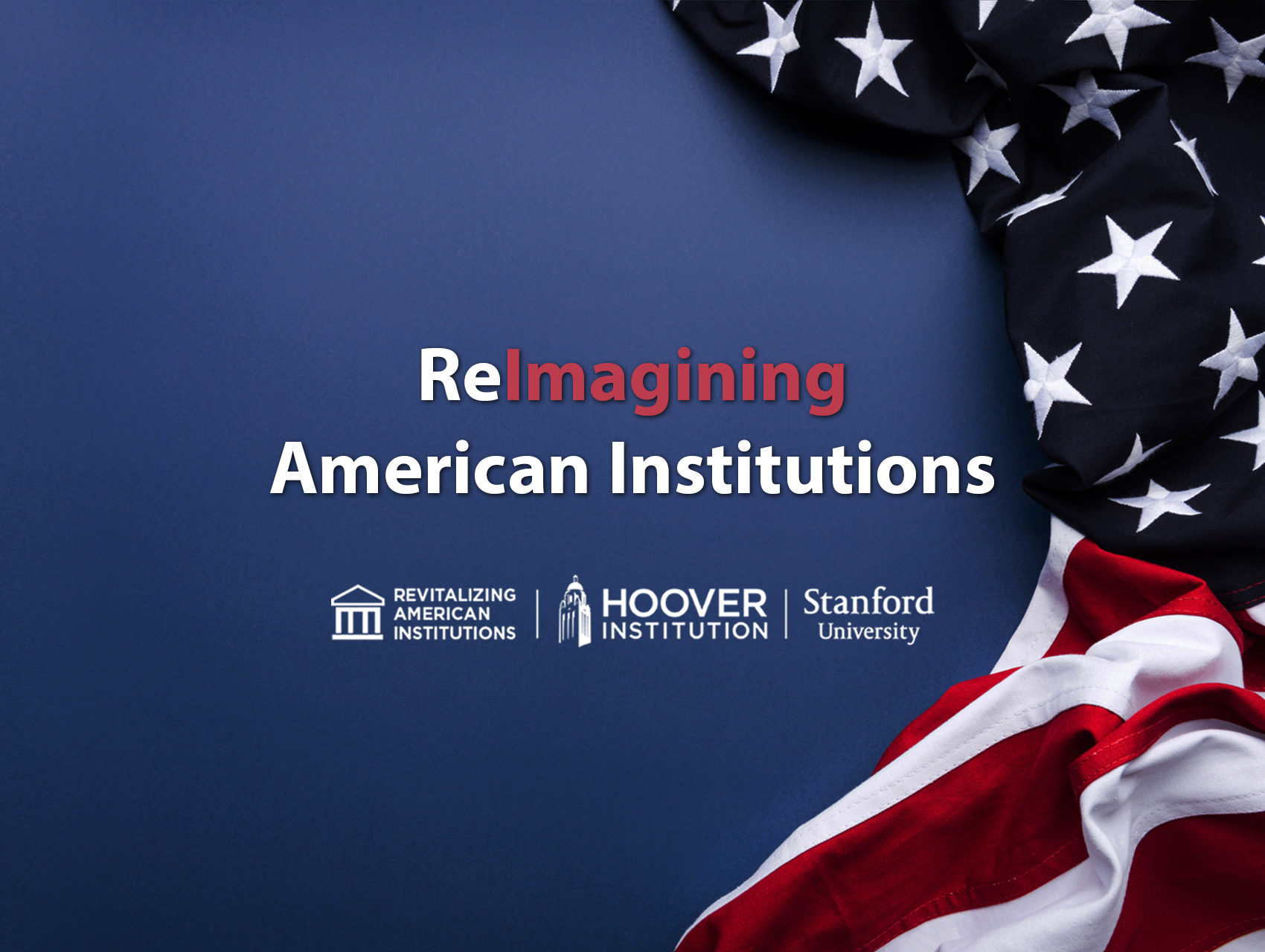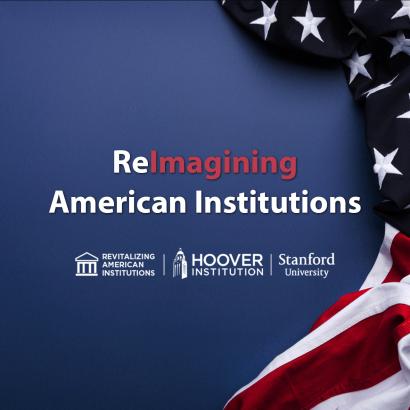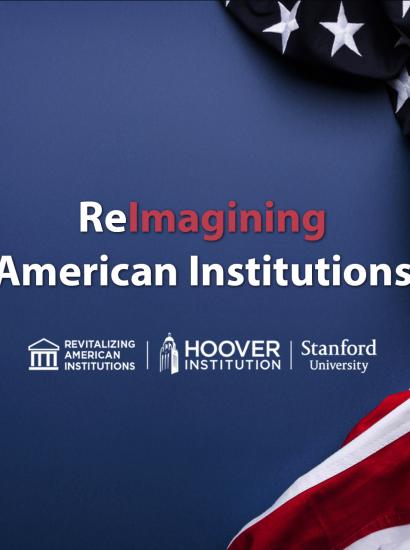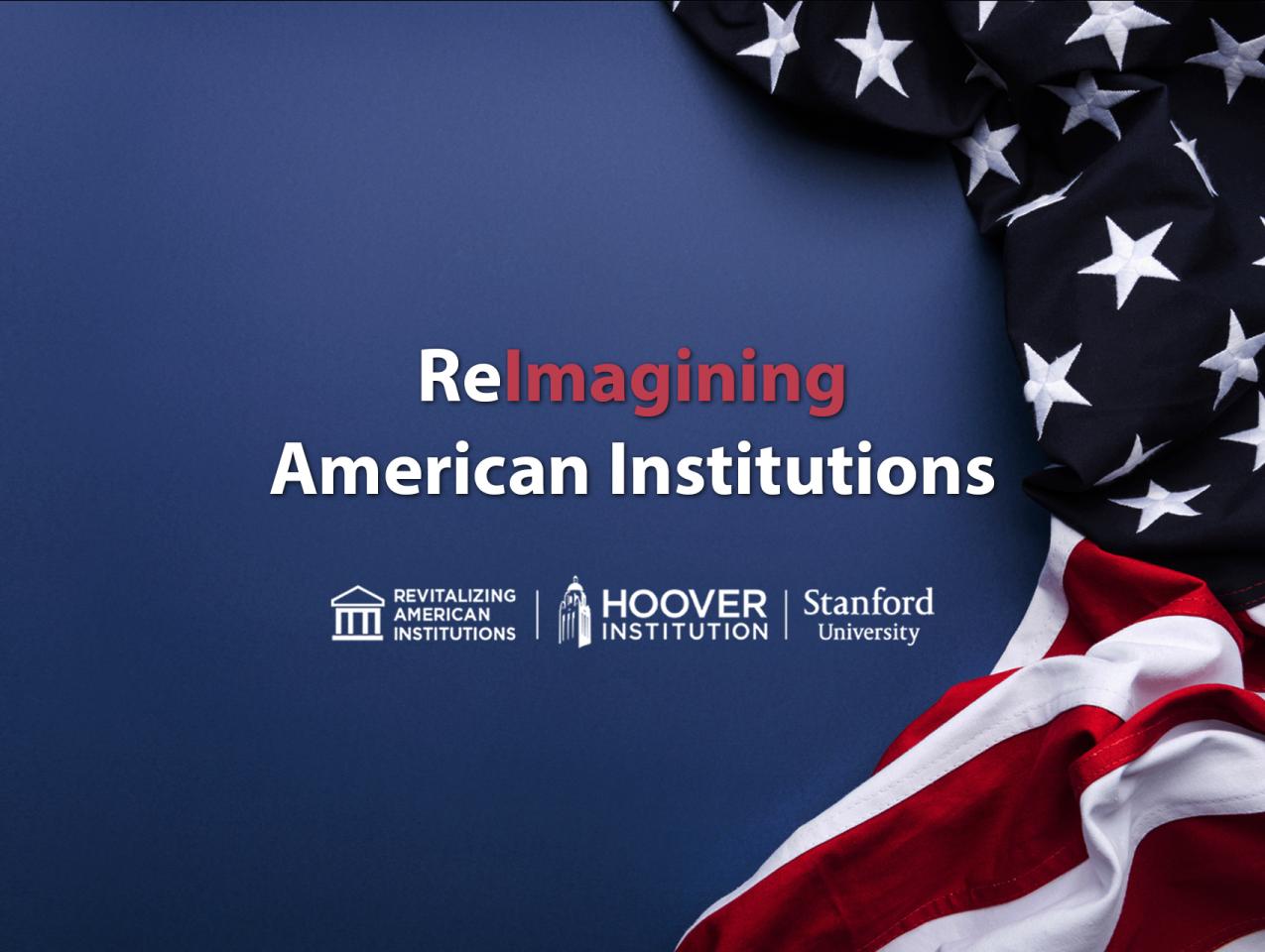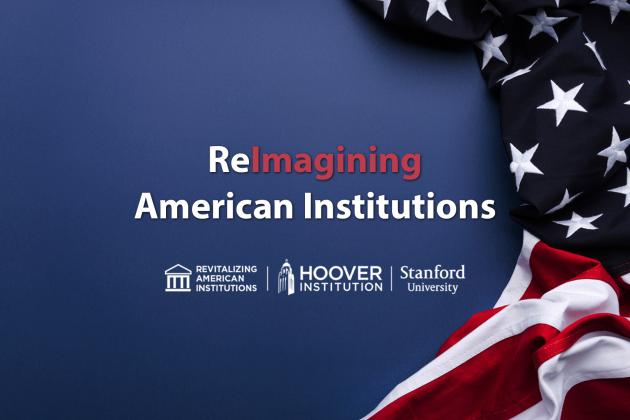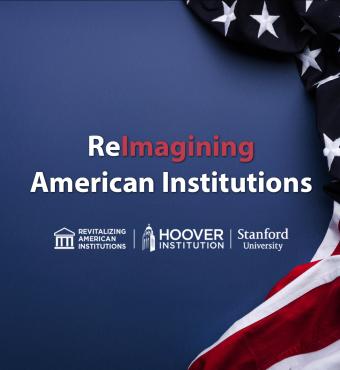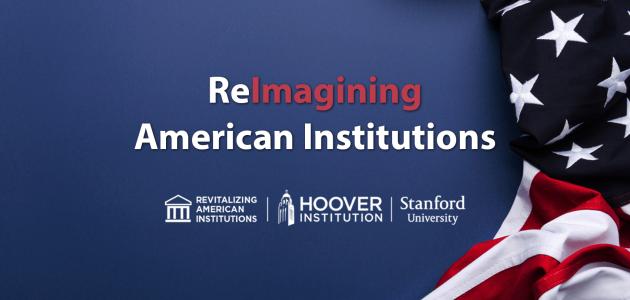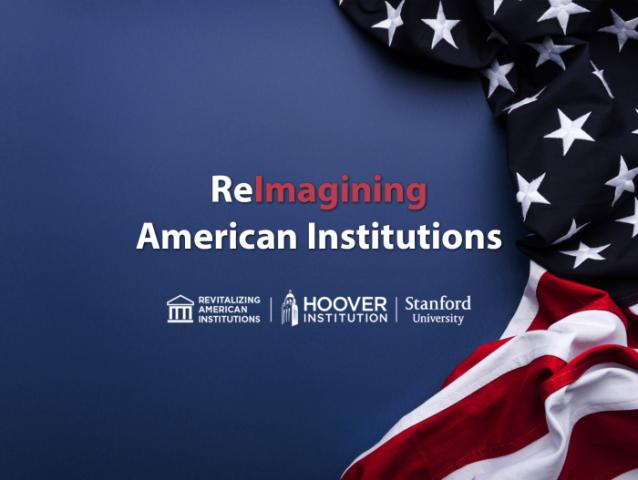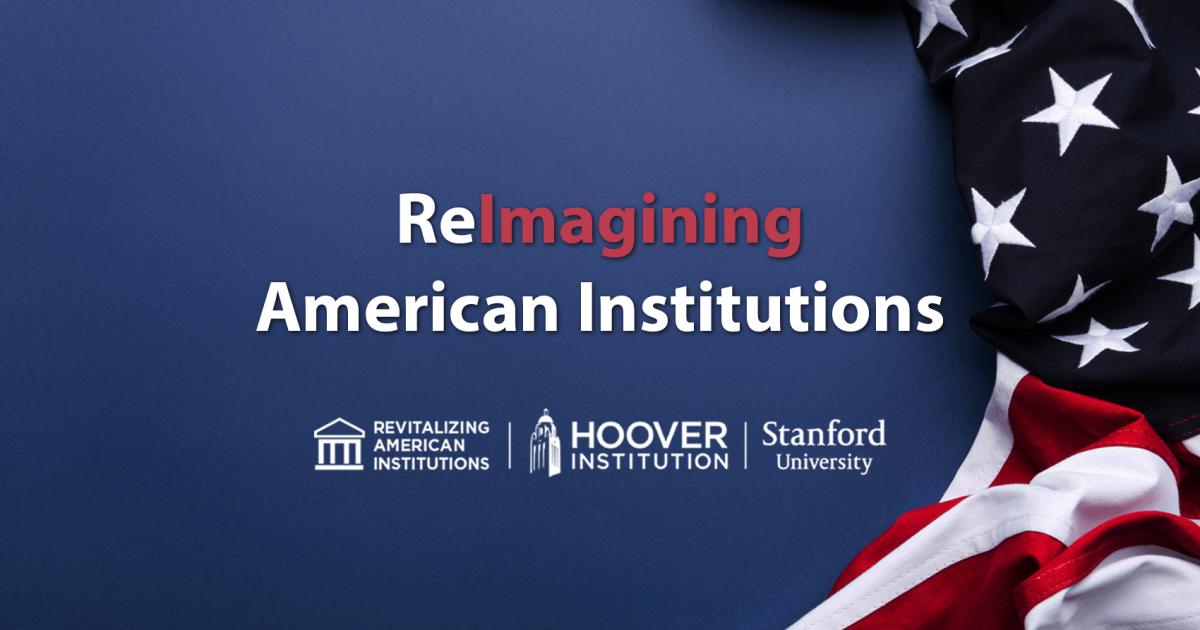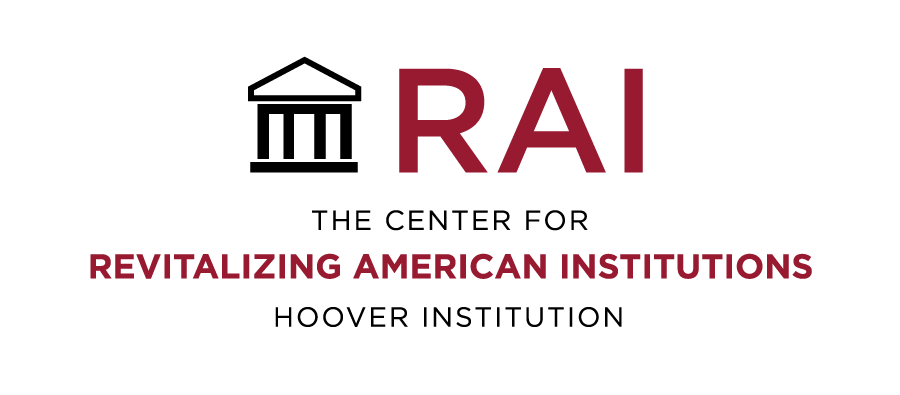- Nine webinars held by Hoover’s Center for Revitalizing American Institutions (RAI) discussed a range of issues pertinent to America, including higher education, the rural-urban divide, and the 2024 presidential election.
- The webinars enabled viewers to ask questions of speakers, and two episodes were broadcast on C-SPAN.org.
- Other topics discussed included how Americans’ free speech rights are impacted by foreign laws, polling leading up to the November 2024 election, and how the White House handles the transition from one presidential administration to another.
Hoover Institution (Stanford, CA) — From managing a presidential transition to deconstructing a national election and assessing the reasons behind rural discontent, webinars hosted by Hoover’s Center for Revitalizing American Institutions (RAI) covered a wide range of topics in the national interest in 2024–25.
The Reimagining American Institutions webinar series featured nine broadcasts airing between October 2024 and May 2025.
The first two broadcasts featured discussions on what really goes into a change of US presidential administrations. First airing in October 2024 was a conversation about the nuts and bolts of getting a new administration set up, featuring RAI Director Brandice Canes-Wrone and Christopher P. Liddell, former deputy chief of staff in the Trump White House, who oversaw the transition to the Biden presidency.
In their discussion, Liddell pointed out that even before January 20, an incoming US president needs to a have a veritable army, some four thousand people, ready for appointment or ready be submitted for confirmation to various positions in order to have a chance to govern quickly.
“A large proportion of those need to be ready at 12:00 a.m. on January 20,” he said. “So, you need certainly more than one thousand, close to two thousand people on the field ready to have an effective government [on day one].”
In a related conversation about presidential transitions, Hoover Institution Director Condoleezza Rice and Stephen Hadley, who served as national security advisors during the first and second terms, respectively, of the George W. Bush administration, discussed the complexities and importance of US presidential transitions, drawing on their own experiences during the 2008 Bush to Obama transition. They also outlined the logistical and strategic challenges that arise when a new administration takes office—particularly when confirmation delays hamper the staffing of key government positions. Their conversation was broadcast on C-SPAN.org.
Concerning the 2024 election, RAI held webinars on the topic in November 2024 and January 2025. The first featured Hoover senior fellows David Brady and Doug Rivers in conversation with political scientists Lynn Vavreck and Daron Shaw, deconstructing trends found in the presidential election. While Brady and Rivers had Harris leading by 1–2 percent prior to the vote, they also saw significant shifts in opinion among the non–college educated, Hispanic voters, and Black voters, which all saw either lower overall turnout or a pivot toward the GOP. This webinar was also broadcast on C-SPAN.org.
For more on the conduct of US elections, Senior Fellow Justin Grimmer and Distinguished Visiting Fellow Benjamin Ginsberg focused on improving the voting process and countering election misinformation. Grimmer explained that fears of widespread voter suppression and fraud lack empirical support, but misinformation persists around both. Ginsberg emphasized the election system’s basic soundness despite historical and recent crises of confidence, noting that there is still public skepticism. Both fellows highlighted the importance of transparency and proactive reforms to build trust, and shared experiences working with election officials and confronting conspiracy theories. They recommended best practices—cleaning voter rolls, prompt reporting, risk-limiting audits—and suggested bipartisan federal reforms. Audience questions focused on mail ballots, ballot harvesting and civic involvement.
Moving from voting to discourse on US college campuses, Lauren A. Wright, author of the forthcoming Tested: Why Conservative Students Get the Most out of Liberal Education, spoke to Brandice Canes-Wrone about her research showing that conservative students, as ideological minorities at elite universities, face social and intellectual challenges, often feel pressured to defend their views, and experience self-censorship. But ironically, this environment leads them to develop greater resilience, self-awareness, and critical thinking skills, often outpacing liberal peers in understanding opposing arguments. Wright and Canes-Wrone discussed similar patterns for liberal students at conservative-majority colleges. Both suggested that universities should foster openness and encourage thoughtful challenges to all views to improve outcomes.
Free-speech expert Senior Fellow Eugene Volokh hosted a discussion on April 30, 2025, about a little-known consequence of the global nature of communications and media today—the fact that foreign restrictions on speech can impact the free-expression rights of Americans. He joined in discussion with Jacob Mchangama of the Future of Free Speech Program at Vanderbilt University, who cited a recent case where Meta’s Content Oversight Board was asked to consider whether a video of a transgender woman entering the women’s bathroom violated its “hateful conduct policies.”
But instead of applying the tests of US courts or the First Amendment, the Oversight Board, which is US based, instead evaluated the case using the International Covenant on Civil and Political Rights, which has a much broader interpretation of what constitutes hate speech than existing US court tests. The Oversight Board eventually dismissed the complaint and allowed the video to be published, but the case remains an example of how foreign rules and interpretations could influence American users of a US-developed social media platform.
Moving to the realms of national security and foreign policy, Senior Fellow H.R. McMaster participated in a webinar discussion with Senior Fellow Stephen Kotkin about the concept of building strategic competence. In their discussion, McMaster explains how building strategic competence involves US policymakers looking to history, rather than social science theories, to explain the world around them. This concept also involves a critical reflection on one’s assumptions, testing them if necessary, to ensure they hold up to scrutiny. If global powers had tested their assumptions about Russian President Vladimir Putin’s intentions regarding Ukraine, or Iran’s intent to use its array of proxies for harm, McMaster argues, they would have likely reached different conclusions than the ones they did.
In the final 2024–25 webinar, Senior Fellow Jonathan Rodden spoke with Nicholas Jacobs, coauthor of The Rural Voter: Politics of Place and the Disuniting of America, before a live audience at Hoover, discussing the real reasons behind America’s rural-urban divide. They spoke of this persistent political divide, emphasizing its significance and complexity in contemporary US politics.
Jacobs highlighted that the divide stems not just from economics or poverty but also from differences in worldview and community identity, meaning that rural voters often seek to restore a version of liberal democracy that values both individuals and places. Rodden and Jacobs explored the impact of historical underinvestment in rural education, environmental policy failures, and the need for genuine engagement with rural communities rather than dismissing them as threats to democracy.
Watch all webinars here.
Additional Reimagining American Institutions webinars are planned for later in 2025:
October 1, 2025 at 10 a.m. (PT): Privacy and Policing in Our Online World
Featuring Orin Kerr and Eugene Volokh
November 5, 2025, at 10 a.m. (PT): Electoral Reform and the Future of American Politics
Featuring Larry Diamond, Brandice Canes-Wrone, Ned Foley, and Rick Pildes
December 3, 2025 at 10 a.m. (PT): Reclaiming Liberal Education in America
Featuring Peter Berkowitz and Brandice Canes-Wrone
Visit https://www.hoover.org/reimagining-american-institutions for more updates.







